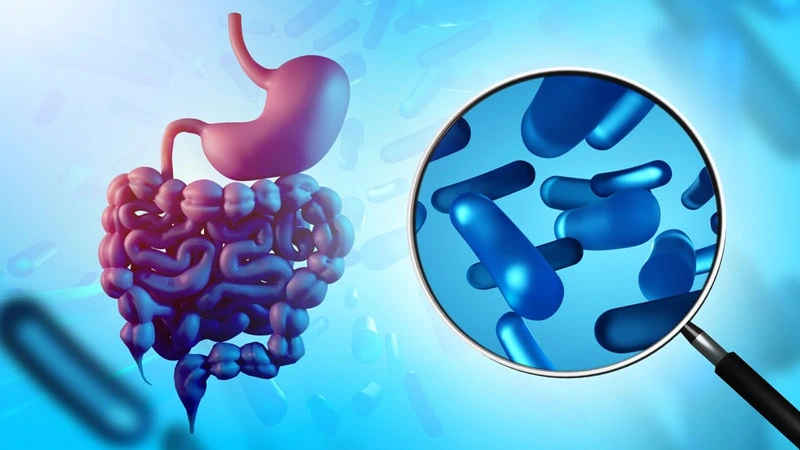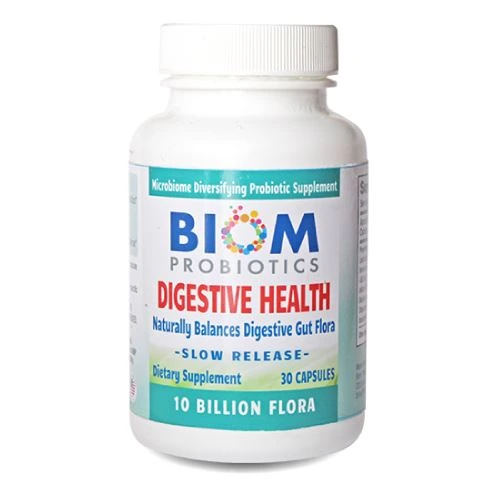Digestive enzymes are proteins that break down food into nutrients, aiding in their absorption by the body. These enzymes are vital in the digestive process, catalyzing the breakdown of complex nutrients like proteins, fats, and carbohydrates into simpler substances our bodies can utilize.
The global digestive enzyme supplements market is expected to reach $2.5 billion by 2027, growing at a CAGR of 7.3% from 2020 to 2027.
The Role of Digestive Enzymes in the Body
The body naturally produces these enzymes in organs such as the pancreas, stomach, and small intestines. They start acting in the mouth, where enzymes like amylase begin the digestion of carbohydrates. These enzymes continue to break down food particles into absorbable nutrients throughout the digestive tract.
How Digestive Enzyme Supplements Work
Digestive enzyme supplements provide the body with additional enzymes to aid digestion, potentially reducing symptoms like bloating, gas, and indigestion. They can be particularly beneficial for individuals with conditions like pancreatitis and cystic fibrosis that interfere with the body’s natural enzyme production.
Types of Digestive Enzymes: Protease, Lipase, Amylase, and Lactase
Protease, lipase, amylase, and lactase are these supplements’ most commonly found enzymes.
- Protease helps digest proteins
- Lipase breaks down fats
- Amylase handles carbohydrates
- Lactase is crucial for digesting lactose, a sugar found in dairy products.
Over 60% of Americans take digestive enzyme supplements to support their digestive health.

Benefits of Using Digestive Enzymes Supplements
Following are the benefits of digestive enzymes.
- Improving Digestion and Nutrient Absorption
- Managing Digestive Disorders: Pancreatitis, Lactose Intolerance, Bloating, and Cystic Fibrosis
Improving Digestion and Nutrient Absorption
Taking digestive enzyme supplements can improve nutrient absorption by ensuring complete digestion of food. Improved absorption means your body can take in more of the beneficial nutrients from your food, which could lead to better overall health.
Managing Digestive Disorders: Pancreatitis, Lactose Intolerance, Bloating, and Cystic Fibrosis
Digestive enzyme supplements can help manage various digestive conditions. For example, lactase supplements can help people with lactose intolerance digest dairy products more comfortably. Similarly, people with pancreatitis or cystic fibrosis, which impair natural enzyme production, can also benefit from these supplements.
Top Digestive Enzyme Supplements
Choosing the right digestive enzyme supplements depends on your specific needs. Factors to consider include the types and concentrations of enzymes in the supplement, the presence of any other active ingredients, and whether the supplement is suitable for vegetarians or people with allergies.
How to Choose the Right Supplement: Considering Your Diet, Condition, and Lifestyle
Choosing a digestive enzymes supplement depends on your diet, lifestyle, and specific health conditions. For example, if you’re vegetarian or vegan, you’ll want a plant-based supplement. Similarly, if you have specific digestive issues, you might need a supplement with a higher concentration of certain enzymes.

Natural Digestive Enzymes: Fruits, Vegetables, and Fermented Foods
While supplements can be helpful, obtaining digestive enzymes naturally from food is also an excellent option. Certain fruits, such as pineapples and papayas, contain natural digestive enzymes. Similarly, fermented foods like yogurt, sauerkraut, and kimchi are good sources of these enzymes.
Most digestive enzyme supplements contain plant-based enzymes like papaya, pineapple, and figs.
How to Incorporate Digestive Enzyme-Rich Foods into Your Diet
Incorporating enzyme-rich foods into your diet can be as simple as adding a side of sauerkraut to your meal, having a yogurt-based snack, or enjoying a piece of pineapple or papaya for dessert. Regularly consuming a variety of these foods can help improve your digestion naturally.
Potential Side Effects and Precautions
Like all supplements, digestive enzymes can have side effects. While they are generally safe for most people, they can cause gas, bloating, and stomach upset in some cases. Rarely, they can cause allergic reactions.
When to Consult a Healthcare Provider
Before starting any new supplement regimen, consulting with a healthcare provider is always a good idea. They can guide the appropriate dosage and can consider any potential interactions with other medications you may be taking.
How Digestive Enzymes Supplements Can Help with Food Intolerances
- Addressing Lactose Intolerance with Lactase Supplements
- Gluten Intolerance and DPP-IV Enzyme Supplements
Addressing Lactose Intolerance with Lactase Supplements
For those dealing with lactose intolerance, lactase supplements can be a game-changer. By supplementing with lactase, the body is better equipped to break down lactose, reducing discomfort and allowing for more flexibility in dietary choices.
Gluten Intolerance and DPP-IV Enzyme Supplements
Similarly, those with non-celiac gluten sensitivity might find relief with supplements that contain the enzyme DPP-IV, which assists in the breakdown of gluten. This can help manage symptoms, although it is not a substitute for a gluten-free diet in those diagnosed with celiac disease.
The Symbiotic Relationship Between Digestive Enzymes and Probiotics
Probiotics and digestive enzymes often work hand in hand for optimal digestive health. While digestive enzymes break down food for nutrient absorption, probiotics promote a healthy gut environment. Together, they can optimize your digestive process, making it efficient and trouble-free.
Probiotic Supplements: Another Piece of the Digestive Health Puzzle
Including a quality probiotic supplement in your regimen can enhance the effectiveness of digestive enzymes. By nurturing the beneficial bacteria in your gut, you can foster a healthy digestive ecosystem that works efficiently to process the food you eat.
Regular Dosage and Best Time to Take Digestive Enzymes Supplements
Digestive enzyme supplements typically come with dosage instructions that should be followed unless directed otherwise by a healthcare provider. Overdosing can lead to stomach discomfort and other side effects.
Timing Your Supplement: Why Taking Enzymes with Meals is Best
For most people, taking digestive enzymes with meals is ideal. This ensures that the enzymes are present when they are most needed – as your body is actively working to break down the food you have just consumed.
Final Thoughts on Boosting Your Digestion with Digestive Enzyme Supplements
Optimizing your digestive health can have a profound impact on your overall well-being. You can enhance nutrient absorption and minimize digestive discomfort with the right combination of a balanced diet, digestive enzymes, and probiotics. As always, any supplement regimen should be discussed with your healthcare provider to ensure it fits your needs and overall health plan.
Frequently Asked Questions
Are digestive enzymes the same as metabolic enzymes?
While both are essential for health, digestive enzymes help break down food, while metabolic enzymes are involved in cellular functions and processes.
Can I take too many digestive enzymes?
Yes, exceeding the recommended dosage may lead to stomach discomfort and other side effects.
Is there a vegan option for digestive enzyme supplements?
Yes, there are vegan digestive enzyme supplements available that are derived from sources like fruit and microbial enzymes.




